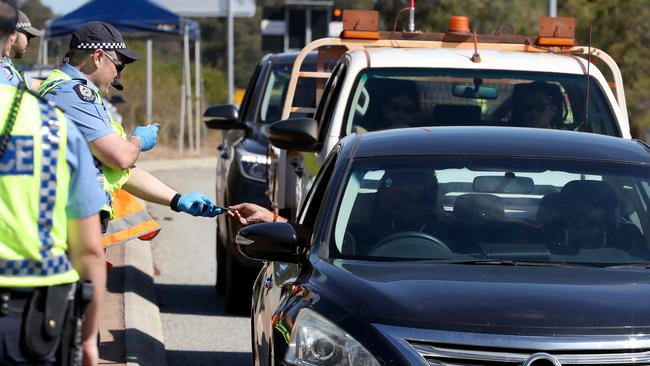Coronavirus: Fears for indigenous as outback health workers infected
Five health workers have tested positive to coronavirus in the Kimberley region where half of all residents are indigenous.

Five health workers have tested positive to coronavirus in the remote Kimberley region where half of all residents are indigenous.
The infected people include an employee of the WA Country Health Service in Halls Creek, a service hub for Aboriginal communities and the place where desert people often go for medical treatment.
Three of the other Kimberley health workers were in the region’s largest town of Broome and one was in the town of Kununurra near the Northern Territory border. All three towns have hospitals.
The cases come despite efforts to prevent travel to the region and in particular to remote communities. About 17,000 of the Kimberley’s 34,000 residents are indigenous and considered especially vulnerable to COVID-19 because they have a higher incidence of underlying health issues. The number of confirmed cases in the Kimberley now stands at 12.
The news came as police, army and emergency services volunteers began manning checkpoints across Western Australia to effectively confine every resident to one of nine regions.
From midnight on Tuesday, the McGowan government established intrastate borders that it hopes can slow the spread of coronavirus to country towns.
Of particular concern are communities with a high proportion of vulnerable residents, including the retirement hub of Albany.
WA is the first state to set up borders within its borders, though there are exemptions for essential workers, such as miners, and goods such as food. Premier Mark McGowan said he wanted to go further than borders around each of the state’s regions, some of them vast. He contemplated locking down individual towns.
“We did consider local government boundaries as the borders … but at this point in time it was too logistically difficult,” he said. “The nine borders now have checkpoints on various crossings … that the police, the SES and indeed the Australian Army are supporting us with. The checkpoints have worked well where they are in place and that … freight has moved relatively quickly, even though people have been at times lined up at the crossings.”
On the southern outskirts of Perth on Wednesday, police on Albany Highway dealt mostly with mine workers and truck drivers. They allowed them through because they were exempt. By late morning, 12 people had been turned away. One wanted to go bushwalking and another intended to cross the new border to collect firewood.
“I’m advised some people have been turned back,” Mr McGowan said. “It appears it is all working relatively smoothly, even though I understand some people may be frustrated … and if people are frustrated then hopefully that means the message is getting through.”
The checkpoints were made possible under state-of-emergency powers.
This has given Police Commissioner Chris Dawson the authority to order ships not to dock, direct his officers to arrest people who refuse to self-isolate and to close Perth Zoo.
There are fines of up to $50,000 for people who ignore a directive to self-isolate and police can issue $1000 on-the-spot fines to anyone not practising social distancing.
Mr Dawson said most people accepted the extraordinary measures were there for everyone’s protection.
“I don’t want this to be punitive,” he said “I don’t want this to be a situation where we are just slapping out fines. We need the community to understand.”




To join the conversation, please log in. Don't have an account? Register
Join the conversation, you are commenting as Logout